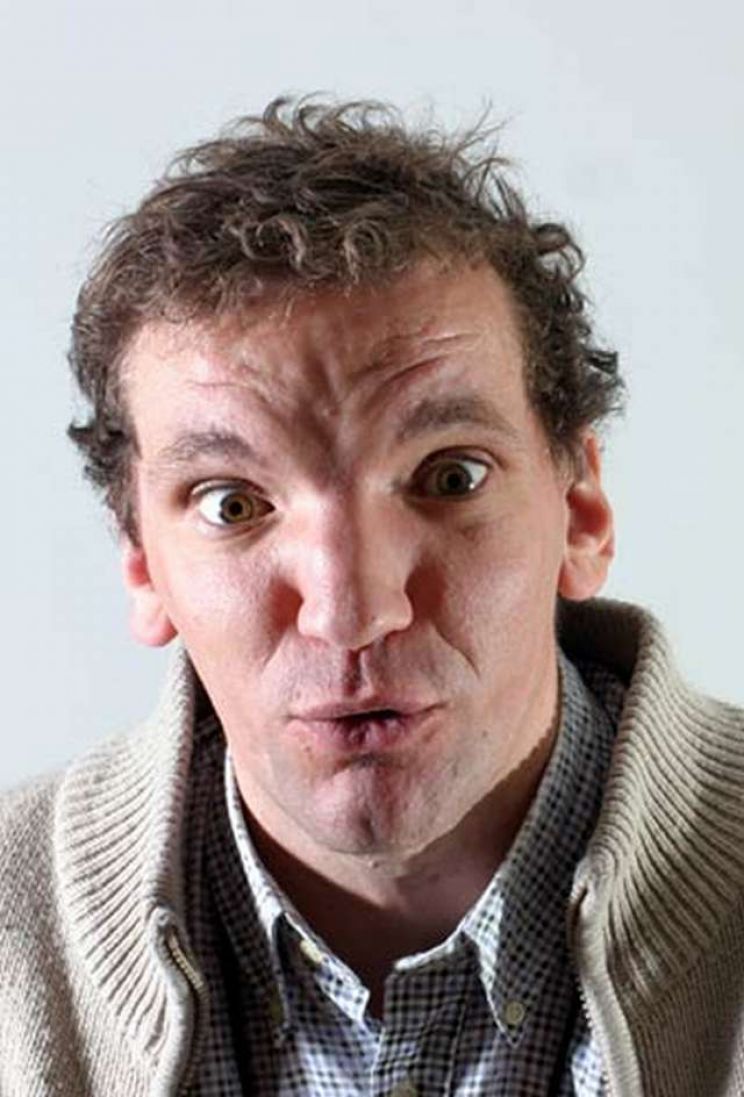When you think of Henning Wehn, the first thing that comes to mind is his sharp wit, hilarious jokes, and a career that’s made countless people laugh. But behind the scenes, there’s a story that hits closer to home—one that involves a heart attack that changed everything. This isn’t just about a comedian’s health scare; it’s about resilience, self-care, and the importance of paying attention to our bodies. Henning Wehn’s heart attack is more than a headline; it’s a wake-up call for all of us.
Henning Wehn has been a household name in the comedy world for years. Known for his unique blend of humor and intellect, he’s not just another comedian—he’s a phenomenon. But even the strongest of us can face unexpected challenges, and for Henning, that challenge came in the form of a heart attack. It’s a story that many haven’t heard, but one that deserves attention.
So, why are we talking about this? Because it’s not just about Henning Wehn’s personal battle; it’s about understanding the signs, taking care of ourselves, and learning from someone who’s been through it all. This is a story that goes beyond laughter—it’s about life, health, and the importance of prioritizing what truly matters.
Table of Contents
- Henning Wehn: A Brief Biography
- Details of Henning Wehn's Heart Attack
- Understanding the Risk Factors
- Recognizing the Symptoms
- Treatment and Recovery
- Preventing Heart Attacks
- Lifestyle Changes Post-Heart Attack
- Mental Health After a Heart Attack
- The Role of Community Support
- Key Takeaways
Henning Wehn: A Brief Biography
Before we dive into the details of Henning Wehn’s heart attack, let’s take a moment to understand who he is. Henning Wehn was born on January 29, 1975, in Neuburg, Germany. He’s a comedian, actor, and writer who has captured the hearts of audiences across the globe. Known for his satirical take on politics, culture, and everyday life, Henning has carved out a niche for himself in the comedy world.
Here’s a quick look at some key facts about Henning Wehn:
Henning Wehn's Data
| Full Name | Henning Wehn |
|---|---|
| Date of Birth | January 29, 1975 |
| Place of Birth | Neuburg, Germany |
| Profession | Comedian, Actor, Writer |
| Known For | Panel shows, stand-up comedy, political satire |
Henning’s journey from a small town in Germany to international stardom is nothing short of inspiring. But even the most successful among us aren’t immune to life’s challenges, and Henning’s heart attack is a testament to that.
Details of Henning Wehn's Heart Attack
Henning Wehn’s heart attack happened unexpectedly, like it does for so many people. In 2019, during one of his tours, Henning experienced severe chest pain. At first, he thought it was just indigestion or stress, but the pain persisted. It wasn’t long before he realized something was seriously wrong.
Here’s what happened next:
- Henning was rushed to the hospital, where doctors confirmed it was a heart attack.
- He underwent emergency treatment and was lucky to survive.
- Since then, Henning has been open about his experience, using it as a platform to raise awareness about heart health.
This wasn’t just a personal battle for Henning; it was a turning point in his life. It made him reflect on his lifestyle, priorities, and the importance of self-care.
Understanding the Risk Factors
So, what led to Henning Wehn’s heart attack? Like many cases, it was a combination of factors. According to the American Heart Association, some common risk factors for heart attacks include:
- High blood pressure
- High cholesterol
- Smoking
- Obesity
- Family history of heart disease
For Henning, stress from his busy schedule and a less-than-ideal diet may have played a role. But here’s the thing: heart attacks don’t discriminate. They can happen to anyone, regardless of age, gender, or background. That’s why it’s crucial to understand the risks and take action.
Recognizing the Symptoms
One of the most important lessons from Henning Wehn’s story is the importance of recognizing the symptoms of a heart attack. Here’s what to look out for:
- Chest pain or discomfort
- Shortness of breath
- Nausea or lightheadedness
- Pain spreading to the arms, neck, jaw, or back
Many people dismiss these symptoms, thinking they’re not serious. But as Henning’s experience shows, it’s always better to err on the side of caution. If you or someone you know is experiencing these symptoms, seek medical attention immediately.
Treatment and Recovery
Once a heart attack is confirmed, treatment begins immediately. For Henning Wehn, this involved:
- Medications to improve blood flow
- Procedures like angioplasty or stenting
- Rehabilitation and lifestyle changes
Recovery isn’t just about physical healing; it’s about rebuilding your life. Henning took this opportunity to reassess his priorities and make positive changes. He started exercising more, eating healthier, and taking time to relax. It’s a journey that requires patience and dedication, but one that’s worth it in the end.
Preventing Heart Attacks
Prevention is key when it comes to heart health. Here are some tips to reduce your risk:
- Eat a balanced diet rich in fruits, vegetables, and whole grains
- Exercise regularly—aim for at least 150 minutes of moderate activity per week
- Avoid smoking and limit alcohol consumption
- Manage stress through techniques like meditation or yoga
- Get regular check-ups to monitor your blood pressure and cholesterol levels
These small changes can make a big difference in the long run. And who knows? You might even inspire others to take better care of themselves, just like Henning Wehn has done.
Lifestyle Changes Post-Heart Attack
After a heart attack, life looks a little different. For Henning Wehn, this meant making some significant changes to his lifestyle. He started prioritizing his health over his career, something that many of us could learn from. Here’s what he did:
- Reduced his touring schedule to allow for more downtime
- Incorporated exercise into his daily routine
- Switched to a healthier diet, focusing on nutrient-rich foods
- Spent more time with family and friends
It’s not always easy to make these changes, but they’re essential for long-term health. Henning’s story is a reminder that it’s never too late to start taking care of yourself.
Mental Health After a Heart Attack
While physical recovery is important, mental health shouldn’t be overlooked. Many people experience anxiety or depression after a heart attack, and Henning Wehn was no exception. Here’s how he tackled it:
- He sought professional help when needed
- He leaned on his support system of friends and family
- He practiced mindfulness and gratitude
Mental health is just as important as physical health, and it’s something we should all prioritize. Henning’s openness about his struggles has helped reduce the stigma surrounding mental health issues.
The Role of Community Support
Henning Wehn’s recovery wasn’t just a personal journey; it was a community effort. His friends, family, and fans played a vital role in his healing process. Here’s how:
- They offered emotional support during tough times
- They encouraged him to stay positive and focused
- They helped spread awareness about heart health
Community support can make all the difference in the world. Whether it’s through personal connections or online platforms, having a network of people who care about you can be incredibly powerful.
Key Takeaways
Henning Wehn’s heart attack is more than just a story—it’s a lesson for all of us. Here are the key takeaways:
- Heart attacks can happen to anyone, regardless of age or background
- Recognizing the symptoms early can save lives
- Prevention is key—make lifestyle changes to reduce your risk
- Mental health is just as important as physical health
- Community support can make a huge difference in recovery
So, what can you do? Start by taking care of yourself—eat well, exercise, and manage stress. Talk to your loved ones about heart health and encourage them to prioritize their well-being. And if you haven’t already, check out Henning Wehn’s work—you’ll laugh, you’ll learn, and you’ll be inspired.
Don’t forget to leave a comment below and share this article with your friends. Let’s spread the word about heart health and make sure no one goes through this alone. After all, laughter may be the best medicine, but knowledge is a close second.


